On a river rafting trip in 2008 to Nepal, Mohammed Al-Thani was introduced to the beauty of the Himalayas Mountains. A lifelong adventure lover, Mohammed was entranced by the idea of one day summiting the highest peak in the world.

Five years later, Mohammed accomplished this dream and became the first Qatari man to summit Mount Everest. Since then, he has also gone on to climb the Seven Summits on the seven continents.
“Through my mountaineering, I show people that all dreams are possible. No matter how high they are, they just need a lot of action, planning, overcoming obstacles and there is no dreams that cannot be reached,” he said.
Mohammed recently became the first Qatari to summit Nepal’s Ama Damblam Mountain. “Ama Dablam, which means mother necklace, is one of the most beautiful mountains in the world and it is a mountain that took my breath away the first time I saw her in 2009,” he said. However, the opportunity to climb it never presented itself before now.
Climbing mountains during a global pandemic brought along its own set of challenges. “I was thinking: I can stay here for one month or I can climb this mountain. I decided to climb just two weeks before when I usually always plan a climb 1 year in advance. However, within two weeks, I was on the mountain climbing”.
From the onset, the possibility to even begin the climb was uncertain. “They told us that the mountain was closed and no one can climb. One day before we had to go, they allowed us. There was many challenges that happened before reaching or starting the climb,” Mohammed said.
Despite the challenging circumstances, once on the mountain, nothing can bring down Mohammed’s spirits. “Whenever I am in the mountains or climbing, I’m the freest,” he said. Far from the noise and distraction of daily life, the only thing on his mind is reaching the top.
With climbing the Seven Summits already under his belt, Mohammed hopes to complete the Explorers Grand Slam by skiing to the North Pole in April 2021. “My journey to inspire others to reach their dreams and that is my purpose,” he said.
For anyone interested in exploring the adventures of the outdoors, Mohammed recommends to just go for it. “There is a big adventure community in Doha; they just need to sign up,” he said. “However, if people really want to step out of their comfort zone, then I highly advice climbing Kilimanjaro or trekking to Everest base camp. These two are an amazing starting adventure”.
James Mwale is the General Manager at Evolution Sports, or ‘Evo Sports’, where he has worked since 2011. We asked him to share how the organisation has grown to become one of the largest sports academies in Qatar.
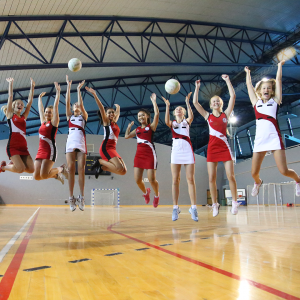 What is the secret to the success of Evo Sports?
What is the secret to the success of Evo Sports?
Evo Sports was founded by Tommy Westmoreland in 2007, with heaps of enthusiasm, four keen boys, and a few well-worn footballs.
The growth of the club has been the result of a lot of blood, sweat and tears. Our values of professionalism, respect, friendship, inclusion, pride, integrity, and excellence are the foundations of the organisation.
Our members are at the heart of everything we do, and we are proud of the wonderful relationships that have grown over the years.
What have been some of your biggest achievements and favourite memories?
There have been many high points in the journey of Evo Sports, from being used as a case study for the Qatar 2022 World Cup bid, to being acknowledged as the best multi-sport youth coaching company in Qatar.
One of our biggest achievements has also been the delivery of the national schools football coaching programme ‘GOALZ’, which we delivered in partnership with the QNB Stars League for several years. The programme reached out to over 30,000 young people from more than 50 schools.
We have also been fortunate to work with some of world’s best sports clubs, and our members have had the opportunity to be part of some of the biggest sporting events, including the the FIFA Club World Cup Qatar 2019. Members of our female soccer teams were selected to be the first ever females to represent the ball crew at a major soccer competition in the Middle East.
Can you tell us more about Evo Foundation and its initiatives?
Created in 2010, Evo Foundation is the official outreach programme of Evo Sports. Our mission is to bring together the Evo Family to create life-changing opportunities for the community of Qatar and beyond.
We deliver a wide range of initiatives at schools and within the community, covering areas such as inclusion, employability, education and sport and health. We believe everybody should have the opportunity to become the best version of themselves through sport.
What are your goals for the future?
We wish to continue building on the success of our key sports – soccer, swimming, basketball, netball, fencing and archery – and continue to help our young athletes achieve the highest standards they can through our programmes.
With the World Cup coming in 2022, we want to support Qatar’s efforts to create a lasting sporting legacy. We feel that we have a big part to play in embedding sports into the culture and want to be a beacon for sporting excellence to the rest of the world beyond 2022.
Qatari filmmaker Abdulaziz Yousef created the graphic novel ‘Ya Hoota’ as a way to unite the mythology of the Gulf region within a single cinematic universe. Years later, he has transformed his graphic story into an award-winning animated short film, with the help of co-director Latifa Al-Darwish.

Latifa and Abdulaziz initially met when she was documenting the creation of the graphic novel for her university project. Abdulaziz recalls that “she captured the struggle that came with it. Then we collaborated in other projects, followed by this film”.
‘Ya Hoota’ follows a curious girl in the 1980s trying to save the moon from a lunar eclipse with the help of mythological characters from her grandmother’s stories. Abdulaziz wanted his film to capture a feeling of nostalgia for these folklore stories, and for viewers to see that “people in that time were more in touch with their identity and culture”.
Abdulaziz used animation for the film, as “it is a beautiful way to do storytelling, and there is a lack of it in the Qatari market for such project”.
Abdulaziz included viewers in the creative process for ‘Ya Hoota’ by sharing insights and glimpses on Instagram. Viewers got to see the mood boards that inspired the animation style, share their opinions on different posters for the film, and see behind the scenes videos.
“The interactive aspect is a very important component of my character. I love to put my ideas out there to an extent and feel the how audience would receive them”.
The film went on to win four prizes on the international film festival circuit. Abdulaziz says that although all the producers and the animation community had predicted such a response, he was unprepared.
“I was very happy to receive such recognition, and I think it happened because the film is truthful and tells a story of not judging others and accepting people the way they are,” he says.
The award-winning ‘Ya Hoota’ was facilitated by the Doha Film Institute’s Qatari Film Fund in 2016. This initiative offers support, funding and development opportunities for rising Qatari filmmakers.
“I am really happy that Doha Film Institute has put together the right ingredients for us to make such a thing a reality, and there is more to come from the Qatari creative community for sure,” says Abdulaziz excitedly.
Mariam and Reem Al-Thani founded their start-up, CC: The Works, to provide a nurturing space for Doha’s creatives to connect and create. Looking at the city’s bustling creative scene, they noticed a gap which they were determined to fill; “we wanted to build something grassroots with, and for, the community”.
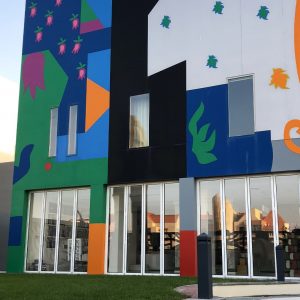
With a lot of hard work, and support from the Qatar Business Incubation Center, CC: The Works became a reality. “Partnering together kept us accountable in realising our vision of creating a safe space for people to imagine, develop, and create all forms of art”.
CC: The Works provides workshops, co-working spaces, studio spaces, production facilities, and discussions with prominent artists. “We found that there was a need for a gathering place, a space for working, and a supportive network for local creatives. CC: The Works provides an answer”.
CC stands for “creative consciousness”, which is what Mariam and Reem wish to impart through their start-up. Recognising the ever-changing landscape of creative production and collaboration, their goal is to evolve as the community they host evolves. “At CC: The Works, we have translated this into a co-creating concept grounded in new-age approaches”.
The hope for CC: The Works is to help rising artists navigate through the diverse local art scene and make their mark on the community. “It’s about creating a platform where they can explore their potential futures, and helping them to learn the ropes on how to penetrate the creative bubble and understand their rights as creatives”.
“Our favourite moments are working with fellow creatives and artists, hosting people in our space and seeing them collaborate and engage in the arts on so many levels. It has been so rewarding to see the community come together and continue to grow”.
Exciting plans await CC: The Works in 2021, as they launch their membership program that will offer exclusive access to studio spaces, facilities and a creative network.
“We are very excited for the next steps that CC: The Works is taking and are always looking to hear from our community on what they’d like from us, in order to learn and grow together”.
At the age of five, Jaber Henzab’s mother recognised his creative talents after gifting him his first set of pencils. He recalls that “she was surprised at what I created and knew I had artistic talent”. Jaber grew up with a strong interest in art, enjoying it as a hobby while he pursued his degree in mechanical engineering.
But his passion for the arts endured and after returning from his studies, Jaber was able to turn it from a side project into a profession. “It’s something that has become an important part of my life, and I enjoy great satisfaction from every hour I get to spend doing art”.
Jaber’s pieces usually originate by something in Doha’s skyline or architecture catching his eye. After capturing an initial photograph, he goes back to his studio and plays with the image, layering it with cartoons and drawings that both fit well into the existing photo while also transforming it completely.
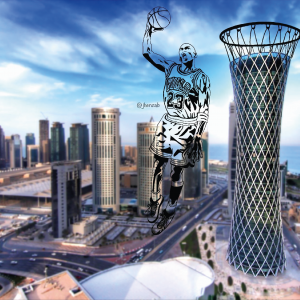
Like many artists, Jaber found inspiration in COVID-19 and some of his most popular works to date were created during quarantine. “I found that people engage with this artwork the most as it’s the most relatable, a joint experience,” he says.
One such creation included two of Doha’s most popular public art pieces playing cards at Hamad International Airport, photos of which went viral shortly after its installation. “I think people resonated with the piece because of their longing for travel, an important thing to the people of Qatar”.
Jaber is excited by the opportunities that social media provides for artists to learn, create and share. “In my opinion, you don’t need a formal education to be a great artist, we now have a lot of resources available to us”.
“Qatar Museums provide us with opportunities to meet great artists, along with hosting workshops, lectures and exhibitions. I try my hardest to attend these as an important way to improve my artistic skills”.
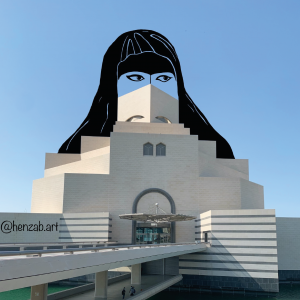
Having established a well-earned reputation and following for his award-winning artwork, Jaber is now keen to venture into different disciplinaries of art, with goals of establishing his own studio and creating public art work.
Reflecting on his impressive portfolio, Jaber notes fondly that his greatest achievement is not any of his awards or exhibitions or viral posts, but just that “everyday I spend my time doing art”.
Inspired by Qatar’s goal of fostering a more sustainable and environmentally conscious society, ‘upcycling’ is becoming increasingly popular in households and businesses across the country. This involves waste and unwanted materials being transformed into quality compost that offers a variety of uses.
Nodoka Nakamichi, co-founder and director for marketing and public relations at Qatar Upcycling & Biodegradables Enterprise (QUBE) describes how the company has taken strong steps in their initiative to reduce food waste in Qatar. Using their advanced machinery, food waste can be processed into compost within 24 hours on site, in contrast to traditional methods that take many weeks.
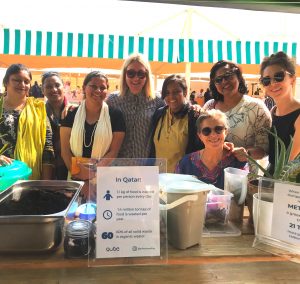
“Upcycling food is a relatively new international movement, so determining how to integrate it into Qatar has been a learning experience. Fortunately, the community has embraced this concept and the interest is continually growing, which has been very motivating,” Nodoka says.
As drivers for sustainability in Qatar, QUBE have held various types of events ranging from composting workshops to collaborations, where they take the machines onsite to demonstrate how much food waste can be regenerated.
Moving their education to the online world, QUBE also utilise their social media platform to provide tips, virtual workshops and support for other sustainable organisations locally and internationally.
“Some of my favourite initiatives on our social media have been our #LoveYourLeftovers campaign, and collaborations with some of the wonderful companies in Qatar like sharing zero food waste recipes.”
Moving towards the Qatar National Vision 2030, companies like QUBE are helping to provide people and organisations with the ability to create lasting change at work and home. “It’s important to us that we teach individuals at home that they don’t necessarily need machines to reduce food waste or to live a sustainable life, everyone can make an impact.”
Laura Brennan was taught about the importance of sustainability by her family from a young age; “my mother instilled these values in me – she was ahead of her time, sending me off to school with my sandwiches wrapped in old cereal packets and finding perfectly edible cabbages discarded at the market.”
An Al Jazeera English news reporter by day, Laura was driven to found EcoSouk when she became aware of the high levels of plastic usage and waste she could see around her. EcoSouk provide products that help to reduce daily waste, including produce bags and pouches, reusable cotton pads, water bottles, bamboo straws and cotton buds; Laura can create five bags and a pouch from just three 500-ml plastic bottles.
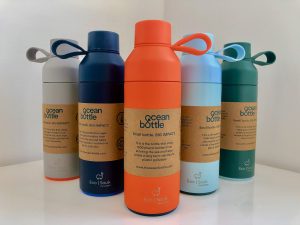
Her products were quick to gain popularity among other environmental enthusiasts in Qatar. “I was doing deliveries every hour I had. That was tough, but exhilarating – meeting all these like-minded people who dislike plastic produce bags who were so pleased to have a product that replaced it so easily.”
In recognition of her work, Laura received the 2020 Qatar Green Building Council SME Sustainability Initiative Award; “it was a real highlight of my EcoSouk journey. The judges recognised the bags as being ‘a sustainable and affordable product, and a perfect addition to the ending of single-use plastic movement in Qatar’. That is exactly what I had wanted them to be.”
For those wanting to live more sustainably, Laura has some simple advice:
“Start by replacing one thing and get into the habit of using it. There is no point in buying reusables if they are not used! Begin with product bags, clip them to your other shopping bags and put them in the front seat of your car. Try a reusable water bottle and coffee cup, find alternatives to cling film and tin foil, a bar of soap instead of shower gel, and for babies, look for eco nappies.”
“Lastly, stop buying stuff. We are addicted to having new things and we don’t need them. The planet cannot keep up with the resources and energy it takes to make all these things and then to dispose of them when we are bored of them.”
Laura and EcoSouk are working to make sustainability easy, and she notes that by adopting some of these simple habits, “future generations will thank you for it.”
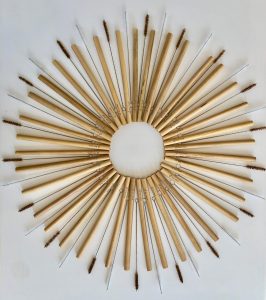
After years of wanting to do something for the environment, Aisha Al Maadeed took the plunge and founded Greener Future in 2018. A Qatari youth-based initiative, Greener Future educates the public on the environment, spotlights eco-friendly alternatives, and encourages people to stand up for the planet.
Greener Future believes small actions done by many people can create a big impact for our environment. This is why they encourage simple steps like the use of plastic alternatives such as reusable bags, shopping at local environmentally conscious shops, and using recycling bins. They also create online awareness campaigns to mark important global events like Earth Hour and World Oceans Day.
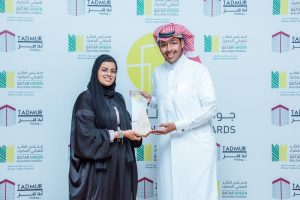
“Our proudest moments are when we see people changing their habits to save the environment,” says Aisha.
One of Greener Future’s most impactful campaigns was to cut down on the use of plastic in Qatar’s cafes and restaurants. They achieved this by placing recycling bins around Doha hotspots to encourage people to recycle their plastic straws and offering reusable products instead for future use. Popular Qatari cafes like Flat White and Origin took up the challenge and began using plastic alternatives in their stores permanently.
Greener Future has diligently worked with many corporations such as the Qatar Green Building Council, Qatar Charity, and Tarsheed to bring about positive change and understanding in Qatar. In collaboration with Qatar Charity’s Ramadan relief efforts last year, Greener Future delivered meals for the needy in eco-friendly packaging, while raising awareness for their cause.
A challenge that Aisha and Greener Future initially faced was getting people to understand the vital need for her organisation. She explains that people are often so set in their ways, that a change seems impossible. However, with some help and awareness from Greener Future, many have acclimated to sustainable practices that provide “a great result to our planet”.
Aisha also visits schools to spread the message of sustainability to young minds. A great focus of the initiative is to educate future generations to halt the destructive cycle, and instead build sustainable habits early on that will help preserve our earth.
“Our current generation has grown up with some bad habits and it now seems difficult to change. But the next generation can adapt with new habits that can save our planet,” she says.
When it comes to protecting Qatar’s environment, Aisha recommends people take small yet significant steps to safeguard our country for future generations. “Start with your simple daily routine to use less plastic products, consider composting. Stop littering in beaches and public places to save the wild life and marine life”.
With a strong belief in the power of youth, Greener Future is optimistic about the growing efforts to conserve our environment. “When I start educating a child about the environment’s relationship to our lives, it makes me proud about what we do as a team in our community”.
Sidra Medicine’s Healing Gardens offer healing and respite for staff and patients alike.
Nestled within Sidra Medicine’s state-of-the-art facilities are the three Healing Gardens. A lush and calming oasis, the gardens provide a welcoming space for patients, families and staff to de-stress and unwind.
The Healing Gardens were inspired by studies showing that gardens can reduce stress and promote relaxation among patients, while also increasing productivity for those at work. Sidra Medicine wanted to offer an alternative patient experience, mitigating as much as possible the stress associated with visiting a hospital.
As the centrepiece of the main hospital, the gardens are loved by all for many reasons. The vivid greenery offers a peaceful escape, while the water features complete the sensory experience. One of the gardens is filled with colourful structures with which children are encouraged to interact. The gardens also have a functional aspect, naturally increasing the oxygen levels in the building.
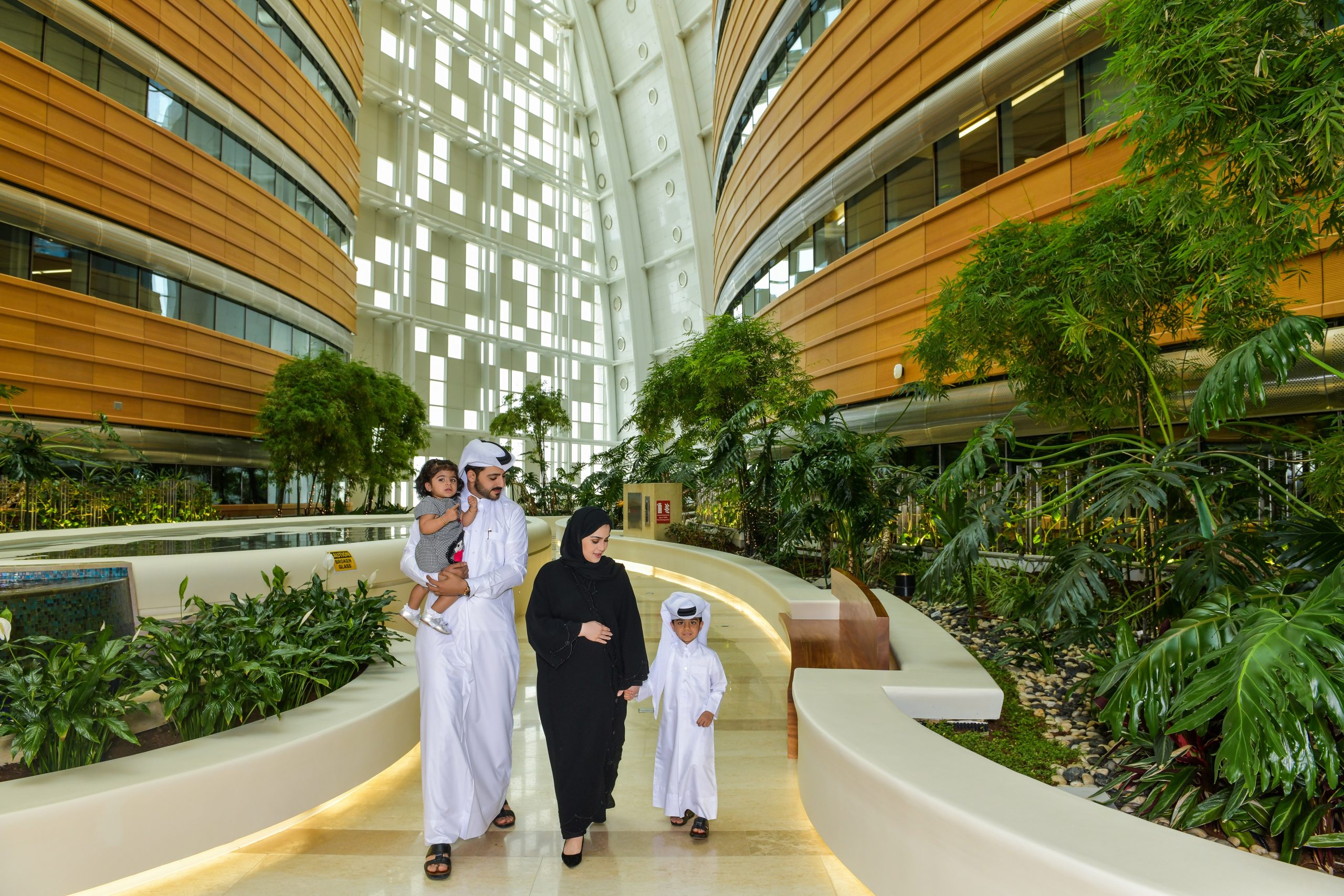
The curved shape of the towering atrium surrounding the gardens resemble the billowing sails of the historic Dhow boat. Designed by renowned Argentinian architect Cesar Pelli, the architecture of Sidra Medicine is intended to offer tranquillity, privacy and healing.
“Exceptional patient and family focused care” is one of the pillars of Sidra Medicine’s philosophy, and the Healing Gardens play an important role in fulfilling its goal of personalised care. Children use the space as a play area, pre-natal patients can typically be seen taking a walk before giving birth, and guest and consultation rooms look out over them for a comforting view. The presence of the gardens has been shown to lower blood pressure and stress levels for many of those who use it.
Sidra Medicine aims to foster a comprehensive healing environment, from the care they provide to the features of the building, and the Healing Gardens are a key factor in accomplishing this objective.
Ghanim Al Sulaiti’s entrepreneurial journey began with a simple thought; “food has the power to change how you look and feel. I’ve met a lot of people on vegan diets who’ve started businesses. I’ve seen the impact they’ve made on their communities, and I wanted to do the same in Qatar”.
Ghanim is the co-founder of Evergreen Organics, established in 2016 and the first vegan café in Qatar. “It is a space that represents sustainability, consciousness, awareness, mindfulness and health. I wanted a place that I can go and feel safe ordering whatever I want on the menu, knowing that the food is cruelty-free and full of nutrients”.
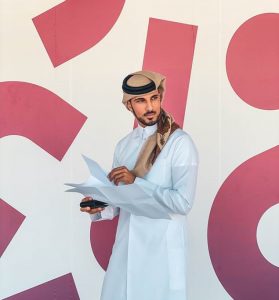
Evergreen Organics quickly became a hotspot in Qatar for healthy food lovers. It motivated Ghanim to explore other green business ventures, such as Papercut Factory and Botany Skincare, that all promote a vegan lifestyle. “All of my businesses have come from a place of need, for myself and others,” he says.
Motivated by his passion for wellness, Ghanim shares his knowledge by hosting educational events around Qatar. “I want people to know about the benefits nature has to offer. I also want people to know that they can have control of their health. This starts with the right nutritional education”.
“Veganism is more than just a diet, it’s a movement, it’s about being as compassionate as possible to the environment and animals”. Ghanim initially found committing to the vegan lifestyle challenging, but he soon found pleasure in seeking out vegan-friendly substitutes for his previous diet; “at times, it can definitely be hard to find vegan alternatives, especially when going out and socialising. However, now I know the ways to replace certain foods, which has made me more confident about my choice to be vegan!”
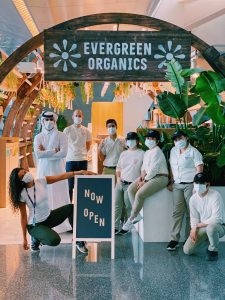
Evergreen Organics recently opened a branch in Qatar’s Hamad International Airport
For those considering turning vegan, Ghanim offers some advice: “the first step you should do is to lean into it, don’t jump from being a meat-based diet to a vegan diet. I took one year to go fully vegan. Take your time, introduce healthier options and alternatives, but the motivation behind it should be: what can you do to feel better and help the environment?”
This is a question which guides Ghanim in both his diet and his career. It is one which appears to have served him well, and from which we can all take inspiration.